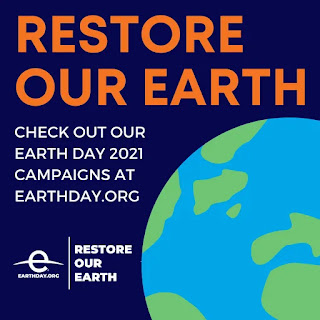In April 1973, to mark the third annual Earth Day, my 13-year-old self planted a tree in front of my Pittsburgh middle school, St. Canice. Two teachers, eyeballs rolling and audibly sighing, accompanied me outside. Students watched from their classroom windows. It was over in about 10 minutes. “Ecology” was trendy, along with maxi skirts and long hair for girls as well as boys.
Nearly 50 years later, where are we? Ecology is no longer a fad, it’s a science. Humans are ruining the planet, causing climate change. The sea level is rising, glaciers are melting, species are falling into extinction. We have been irresponsible stewards of creation.
As Earth Day approaches, on 22 April, what can we do? Locked down for the most part and discouraged to mobilize, our scope of action is limited. Could we plant a tree in some way? We could learn, feel, and do. Learn about climate change. Feel the pain of vulnerable people who work in dumps or cannot escape the climate destruction of their homes. Do much more.
As an individual, I’m trying to take bolder steps. I stopped buying clothes after reading a book about the toxic fashion industry, "Fashionopolis: The Price of Fast Fashion and the Future of Clothes," by Paris-based author Dana Thomas. “Any more than you need is greed,” is what I remember the conservationist Jane Goodall saying in an appearance at the American Church in Paris in May 2014.
Beyond clothes, I’m trying to refrain from “impulse” purchases. We needed a living-room rug, so I went online to my favorite big box store. But wait a moment, I said to myself, isn’t there a greener choice? I ended up purchasing a 100% wool rug from a company that is working with suppliers (in this case Turkey) to ensure care of workers and climate.
And I joined our neighborhood composting group, where I am both getting to know my neighbors and reducing what goes into the garbage and the incinerator. It adds up! One group of 30 participants means about one ton less garbage a year, according to l’Agence Parisienne du Climat. To find a local group in Paris, search on the Internet for “composter” and your town or arrondissement. Yinzers go here: https://archive.theincline.com/2018/03/09/how-to-compost-in-pittsburgh-a-beginners-guide/
What will you do this year for Earth Day? Why don’t we examine our reflexes and instead flex for the planet? Perhaps think, feel, and do differently. Start here: https://www.earthday.org/earth-day-2021/. Pittsburghers can also go here: https://twitter.com/PghEarthDay.
Nearly 50 years later, where is that tree I planted? It stood there for at least 25 years. Today it is gone. The small patch of green where the tree stood was remodeled to become a drive-up accessible entrance to a community center. I’m not upset, however. The building now offers free preschool to children in need and houses the headquarters of the Council of Three Rivers American Indian Center.
More than 1 billion people in 192 countries now participate in Earth Day activities each year, making it the largest civic observance in the world. Why not join the party? You never know what will happen if you plant a tree.


